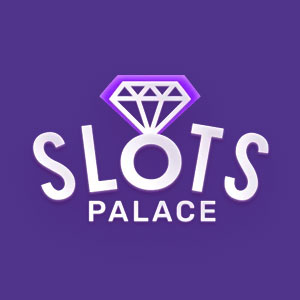Is Online Gambling Legal in Poland?
Online gambling is legal in Poland but operates under a restrictive framework. The current law, shaped primarily by the Gambling Act of 2009 and updated through later amendments, allows certain forms of online gambling while heavily regulating or limiting others.
Polish law permits online sports betting, bingo, and lotteries through licensed operators. These licenses are mostly granted to domestic companies or those with a local presence. Online casino games, such as slots, blackjack, and roulette, are subject to a state monopoly and are only offered through Totalizator Sportowy, the government-owned operator running the platform Total Casino.
Despite these restrictions, many Polish players still access offshore online casinos. These sites operate without a Polish license, which places them in a legal gray zone. Technically, unlicensed operators are prohibited from targeting Polish residents. However, enforcement varies, and individual players are usually not penalized for using these services.
Gambling Regulators and Licensing in Poland
Gambling activity in Poland is regulated by the Ministry of Finance, which is responsible for issuing licenses, overseeing compliance, and maintaining the official register of approved and banned gambling operators.
Local Licensing and Oversight
Online gambling licenses are limited in scope. The Ministry of Finance only grants them for two types of activities:
- Sports betting and lotteries can be operated by private companies, but only if they obtain a Polish license and meet several regulatory requirements.
- Online casino games, including slots and table games, are operated exclusively by Totalizator Sportowy, the state-run operator behind Total Casino.
Private gambling operators seeking to obtain a Polish license must meet strict operational requirements, one of which is that the servers handling the operations (such as hosting, transaction processing, player data, etc.) must be physically located in Poland. Keeping data and funds within the country is seen as a safeguard for player rights and personal information.
Another requirement for a license is that the operating company must be in the European Union or the European Free Trade Association and comply with strict rules regarding shareholding. High-level shareholders and board members must be EU/EFTA citizens, and their credentials, including financial background and professional experience, must be documented.
Any gambling operator that doesn’t fit this criteria, even if already licensed by another regulatory body, may be added to the government’s blacklist. Internet service providers would then be required to block access to blacklisted sites, and payment processors would be obligated to prevent transactions to or from them.
The Benefits of Offshore Casinos
Despite the state monopoly on online casino games, many players turn to international casinos licensed in jurisdictions like Malta, Curacao, or Gibraltar. There are several reasons why these offshore platforms might be more attractive to players:
- Fewer restrictions on payment providers: Offshore platforms tend to support more payment methods, including international e-wallets, cryptocurrencies, and instant banking tools.
- Attractive VIP or loyalty programs: Many offshore casinos offer structured loyalty systems that come with higher withdrawal limits, exclusive bonuses, and access to personalised customer support.
- Delayed verification: Some offshore casinos don’t request full account verification until you reach a certain threshold of transactions. In some cases, you can play and cash out smaller amounts without submitting personal documents.
Beyond withdrawal benefits, offshore casinos also often stand out in other areas. They tend to offer more competitive bonuses, while Polish-licensed platforms face tighter restrictions on how promotions can be advertised. Game selection is typically broader on offshore sites as well, thanks to partnerships with more international providers.
Player Protection and Risks
Players using locally licensed platforms are protected under Polish law. This includes clear recourse through the regulatory authority if something goes wrong, along with strict oversight of responsible gambling policies and secure handling of funds.
In contrast, offshore casinos are not regulated by Polish authorities. While many operate under licenses from reputable foreign regulators, the legal protections available to Polish players are more limited. Still, many users choose these sites for greater convenience and access to services not available locally.
Best Payment Methods for Fast Withdrawals in Poland
Polish players can have access to several banking options that support fast and reliable cashouts. Traditional bank transfers remain very common, but newer and more mobile-friendly tools are also gaining ground.
E-Wallets
E-wallets are among the fastest withdrawal options available. Funds can usually be transferred within minutes to a few hours.
- Skrill is a widely used e-wallet that allows fast and secure withdrawals. The service is fully available in Poland, supports PLN (zloty), and includes a Polish-language interface.
- Neteller is similar to Skrill, offering reliable withdrawals and broad casino acceptance. It’s available in Poland, supports local currency, and works well for fast transactions.
- MuchBetter is a popular mobile-focused e-wallet designed for secure transactions via an app, though it’s not as widely supported as Skrill or Neteller. It supports instant withdrawals at some casinos and uses strong security features like biometric login.
These services allow for near-instant transfers once the withdrawal is processed, and they don’t require sensitive banking information to be shared with the casino.
Note: Some casinos exclude Skrill and Neteller deposits from bonus eligibility. If you plan to use either method for both deposits and withdrawals, check the promotion terms in advance. Using them for withdrawals only typically doesn’t affect bonus access or come with any additional restrictions.
Cryptocurrencies
Offshore casinos often allow withdrawals in Bitcoin, Ethereum, and other cryptocurrencies. These transactions are generally processed quickly, and because they operate outside of traditional banking networks, crypto withdrawals are not affected by weekends, bank delays, or intermediary processing times.
It’s worth noting, however, that cryptocurrency is not supported on Polish-licensed platforms. Current regulations do not permit domestic gambling operators to accept or process payments in digital currencies.
Debit and Credit Cards
Visa and Mastercard are accepted by many online casinos and are familiar options for most players. They’re often the default choice for players making their first deposit since most users already have a card on hand, and many casinos allow withdrawals to the same card used for deposits.
Card withdrawals tend to be slower than other methods, as they often involve extra verification steps. On the upside, many players consider cards a reliable and secure option, especially when dealing with familiar banking institutions.
Popular Polish Banking Methods
Some casinos offer access to instant bank transfer tools, which connect directly to local banks through secure APIs.
- BLIK is a mobile payment system widely used in Poland that allows users to make transfers from their bank accounts using a smartphone. It works by generating a six-digit code in a banking app, which can then be entered on a payment page to confirm the transaction.
- Przelewy24 is a payment gateway that allows users to make transactions, provided that the casino supports transfers through the same network. When you choose to deposit or withdraw, you’re redirected to your bank’s login page, where you authorise the transaction. Once confirmed, the payment is processed in real time.
- PayU is another payment processor with a similar transaction system to Przelewy24. Both services simply act as a bridge between the player’s bank and the merchant (casino), but PayU supports more payment types.
These tools are built for the Polish market and integrate with most major local banks, which makes them convenient for domestic transactions. Withdrawal speed can be faster than standard bank transfers, depending on the bank’s internal processing and whether the platform supports real-time settlement.
Przelewy24 and PayU are less commonly supported for withdrawals compared to e-wallets or cryptocurrencies, however. When they are available, casinos typically require that the same method was used for the deposit.


